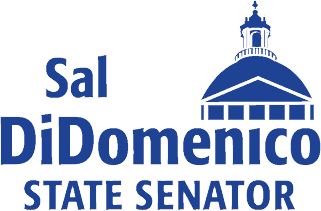BOSTON – Senator Sal DiDomenico worked alongside his colleagues to secure billions of dollars in this year’s state budget to improve our schools, support educators, expand access to early education and ensure students from all zip codes and of any ability can learn and thrive. This broad funding will invest tens of millions of dollars into all levels of education in Cambridge, Charlestown, Chelsea, and Everett.
“Education funding has been a top priority of mine for my entire Senate career, and I can say, without a doubt, this has been the best budget for education that I’ve seen throughout my 13 years at the State House,” said State Senator Sal DiDomenico, Senate Vice Chair of the Legislature’s Joint Committee on Education. “These transformative investments are going to be a game changer for residents in my district and for districts across Massachusetts. I want to thank Senate President Karen E. Spilka, Chair Rodrigues, the Ways and Means staff, and all my colleagues for putting together a budget that will guarantee all our students can eat for free, fund schools to ensure children can get a world-class education and increase access to early education and community college.”
Senator DiDomenico personally fought for years to achieve many of these programs, including Universal School Meals, in-state tuition for students regardless of immigration status, increased funding for early education and care, among others. Learn about the education highlights in this year’s budget:
Universal School Meals
$171.5 million To provide universal school meals to all students free of charge, making Massachusetts the eighth state in the country to make the program permanent. According to the Feed Kids Campaign, 80,000 additional children ate school lunch daily in October 2022 compared to October 2019 as a result of this program.
Free Community College
$50 million will support free community college across all campuses by fall of 2024.
$20 million for the MassReconnect program, as a first step toward free community college in the Commonwealth for those aged 25 and older.
$18 million for a free community college pilot program for nursing students to support an in-demand workforce area and build toward universal free community college in the fall of 2024.
$12 million for free community college implementation supports to collect necessary data, develop best practices, and build capacity for free community college in the fall of 2024.
Chapter 70 Education Funding
For K-12 education, the FY24 budget meets the Legislature’s commitment to the Student Opportunity Act (SOA) by investing $6.59 billion in Chapter 70 funding, an increase of $604 million over FY 2023 as well as doubling minimum Chapter 70 aid from $30 to $60 per pupil. This will increase Everett, Chelsea, Cambridge and Charlestown's school funding by millions of dollars this fiscal year.
Special Education Circuit Breaker
This budget invests $504.5 million for the special education (SPED) circuit breaker. This is an increase of over $30 million from FY23 levels. This critical program supports school districts with special education costs and ensures we can invest the necessary funding so students of all abilities can get the best out of our school system.
Charter School Reimbursement
$232.6 million allotted for fiscal year 2024 reimbursements to certain cities, towns, and regional school districts for charter school tuition and the per-pupil capital facilities component included in the charter school tuition amount for commonwealth charter schools.
In-State Tuition for Students Regardless of Immigration Status
The FY24 budget also provides access to in-state tuition for students without a documented immigration status. All students who have attended a Massachusetts high school for at least three years and graduated or obtained a GED in the state will qualify for in-state tuition rates at Massachusetts public colleges or universities, regardless of immigration status. Tuition equity will help accomplish the Commonwealth’s goals of growing the middle class, building the state’s workforce, and supporting the economy.
Early Education & Care
$1.5 billion investment in early education and care—the largest-ever annual appropriation for early education and care in Massachusetts history.
$85 million in rate increases for subsidized childcare providers across the Commonwealth:
$20M for rate increases for all providers (center and family) - new line item
$35M for Center-based providers for FY23 ($25M allowed for unspent FY23 subsidy funds and $15M grants for providers' personal childcare)
$25M rate reserve
$475 million for the Commonwealth Cares for Children (C3) grants; FY24 is the first fiscal year in which the annual state budget includes a full year of funding for C3 grants, signaling a historic commitment to maintain this crucial lifeline for our early education and care sector.
$42.9 million for Early Intervention (EI) services, ensuring supports remain accessible and available to infants and young toddlers with developmental delays and disabilities.
$17.5M for Head Start grants
$20.5M for CPPI grants (Commonwealth Preschool Partnership Initiative, also known as preschool expansion)
Building and Improving Schools
$100 million for Massachusetts School Building Authority (MSBA) capital supports for cities, towns and school districts experiencing extraordinary school project costs impacted by post-COVID inflationary pressures.
$50 million to create Green School Works, a competitive grant program for projects related to installation and maintenance of clean energy infrastructure at public schools. The program will be administered by the Department of Elementary and Secondary Education (DESE) and preference will be given to schools serving low-income and environmental justice populations.
###
